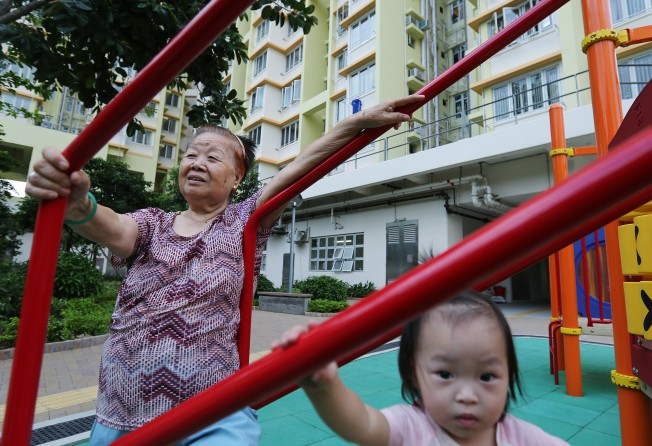Hong Kong doesn’t need an army of maids to care for its young and old. It needs trained professionals
Peter Kammerer says the answer to Hong Kong’s ageing society and lack of child care isn’t another 240,000 foreign domestic helpers. Instead, we need dedicated professionals and better facilities for young people and the elderly

Among the crazy things Hong Kong officials have said recently, the dumbest has to be Labour and Welfare Secretary Law Chi-kwong’s suggestion that we need another 240,000 foreign maids. He contends we’ll require them in the next 30 years to take care of the elderly and for child-minding. This is the sort of short-sighted thinking that has brought Hong Kong to a crossroads in its development, with an obvious way ahead through embracing technology and greater fairness for all, but no detailed plan to make it happen. Our future lies in properly trained professionals, not poorly educated women fresh off a plane.
It’s part of the government mindset to do things cheaply and with as little effort as possible. Why bother with proper social welfare when you can come up with half-baked solutions, palm them off to others, then claim the credit? Rapid ageing, coupled with high housing costs and wages averaging just HK$15,702 a month are straining society, and targeted strategies are necessary. Bringing in overseas domestic helpers to take care of elderly parents and children so both parents can work to make ends meet is merely a band-aid.
Who cares for the carers looking after Hong Kong’s elderly people?
You don’t need to go far to see how severe the problem is. Elderly people ignoring street signs and tottering into peak-hour traffic clearly shouldn’t be on their own. Venture into any McDonald’s and Starbucks on a weekday afternoon and you’ll find them packed with students doing homework; they obviously have nowhere else to go. Suicide rates for the young and old alike aren’t getting better; public mental health services have long waiting lists. We have insufficient professionals, services and facilities to deal with the problems we have.
The answer? More domestic helpers, Law suggests. At HK$4,410 a month, they can be paid far less than a medical professional or social worker with certificates, degrees and training. No need to build aged-care homes, complexes where the elderly can get together and keep their minds active, childcare centres, libraries or facilities with rooms for students to study and do homework. This avoids assessing community needs or determining how many social workers and geriatrics professionals are required.

There’s a perfect example on show at Kai Yip public housing estate in Kowloon Bay. You’ll see maids pushing old men and women in wheelchairs and the McDonald’s at neighbouring Richland Gardens teaming with children after school, heads down at tables, snacking on sugar- and sodium-packed fast food. Land zoned for community use but long a car park for government vehicles and a building being used by a Christian charity to care for the elderly have been earmarked for construction of five blocks of new public housing containing 4,100 flats for an additional population of 10,700 people and a secondary school. A good-sized library and community centre, or even a public swimming pool or home for the elderly, would make more sense; the proposal and plans for rezoning are currently under consideration by the Town Planning Board.
Such plans don’t account for a problem that is as pressing as housing: the number of people aged 65 and over is projected by the government to rise from the present 1.16 million to 2.37 million by 2037, accounting for 31 per cent of the population that year. The fastest-growing sector is the over-80s. With age comes frailty of the body and mind, and greater susceptibility to chronic conditions and disabilities like Alzheimer’s, requiring specialised care and treatment. There is a need for clinics, plus health and social workers trained in geriatrics. To suggest that the fix lies in boosting the number of domestic helpers from the present 360,000 to 600,000 is laughable.
Peter Kammerer is a senior writer at the Post